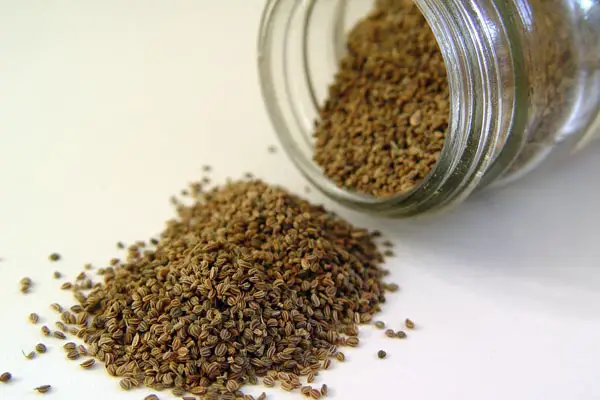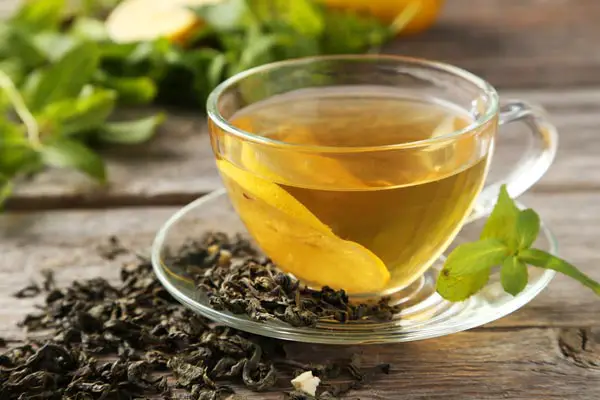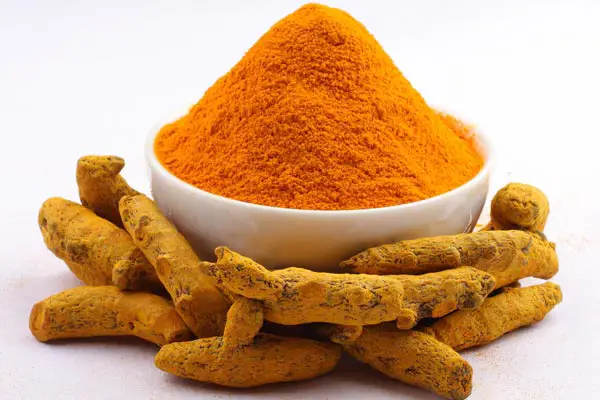Herbs contain a high concentration of vitamin, minerals and antioxidants to help improve the nutrient content in different dishes.
Just by adding the best herbs for curing inflammation, you instantly upgrade the flavor and benefits of the food without adding more calories.
In truth, a single gram of fresh herbs has the potential to offer a higher amount of antioxidant content compared to fruit and vegetables, which are well-known to contain a lot of antioxidants.
For instance, a ½ tsp of cinnamon has a similar amount of antioxidants to about a ½-cup of blueberries, while a ½-tsp of dried oregano has nearly as much antioxidant potential as 3 cups of spinach (raw).
Use the high-quality, dried, fresh, or recently opened herbs to get the most beneficial results.
How do herbs reduce inflammation in the body?
Herbs and spices have long been used in Ayurvedic and Chinese medical practitioners. The healthful benefits are mostly related to the antioxidant and anti-inflammatory properties, as well as the changes that take place in the gut biome.
Antioxidants are appreciated for their ability to neutralize free radical damage that has the potential to cause inflammation.
Nutrients are also useful for controlling the effects of inflammation in several different ways, such as modulating the gut biome, by boosting the production of proteins that fight inflammation, and switching off genes that control the inflammatory proteins.
Here are seven of the best herbs for curing inflammation:

Celery Seed
Celery seeds act much like a diuretic to help reduce inflammation. It works by speeding up the process of clearing excess fluids by increasing the need to urinate. The use of celery seed is most effective with inflammation related to gout and arthritis.
Celery seed is easily added to the diet by simply shaking into meals you may already eat, such as chicken breasts, broiled fish, pork chops, tuna sandwich, green salads, or potato soup.
Ginger
Ginger is another of the traditional medicines that has been used for centuries; this is mostly thanks to its effective anti-inflammatory powers.
Studies indicate the regular use of ginger can help to ease pain related to arthritis or similar inflammatory diseases.
Other healthful benefits of ginger include its ability to help with vomiting, nausea and stomach upset.
The chemicals contained in ginger are known to work most effectively in the intestines and stomach, but also have the potential to work elsewhere such as the nervous system and brain.
Ginger is easily added to the diet by including in a breakfast smoothie or adding a small amount to a stir fry. Plus, it is possible to make ginger tea. Flavor the ginger tea with fresh lemon juice for the best taste.

Green tea
Green tea is rich in a type of micronutrients known as polyphenols that help to fight-off certain types of disease mechanisms that can lead to health complaints, including inflammation.
The major type of polyphenol in this herb is EGCG (epigallocatechin gallate). By combining the different polyphenols contained in green tea it is possible to benefit from its anti-cancer and anti-inflammatory properties.
One particular area that green tea can help in relation to controlling inflammation is in the digestive tract.
Other areas that can benefit include gastrointestinal inflammation that relates to ulcerative colitis and Crohn’s disease, while it can also help slow cartilage destruction and reduce inflammation associated with arthritis.
Rosemary
Similar in many ways to sage, rosemary can be just as effective when it comes to treating inflammation.
This type of natural herb works by increasing the function of the enzyme known as superoxide dismutase; this is useful for removing superoxide. This is a type of free radical that if not neutralized can lead to chronic inflammation.
The anti-inflammatory and antioxidant compounds are easily ingested by using the herb to flavor a variety of dishes, such as meats and roasted vegetables.
Sage
Sage is rich in carnosol and carnosic acid, which are the major anti-inflammatory molecules that make this herb very useful for its healthful properties, as well as contributing to its aroma and flavor.
This type of medicinal herb is particularly helpful for fighting against neurological inflammation-based conditions, such as Alzheimer’s.
Other potential uses for this herb include the ability to lessen signs of anxiety and enhance concentration and memory.
A further component of sage is camphor, which is appreciated for its ability to help destroy fungi and bacteria, while there are other elements in this herb that can act much like an antiviral.
There are plenty of species of sage, which can have slight variations in taste and flavor. But, in the kitchen, it is easy to include this herb in meat roasts, in sausages and in winter squash.

Turmeric
Turmeric is a very powerful and effective medicinal herb for fighting a variety of health complaints such as inflammation, digestive problems, infections and treating certain cancers. It has an appearance that is much like ginger, but its inside is a bright orange.
Turmeric is available in its root form and comes as a fresh fruit, or more commonly, it is available pre-ground into a dried spice for easier use.
Prior studies have shown that the use of turmeric as an herbal treatment can be just as effective in treating arthritis patients with pain as ibuprofen can.
It is possible to use turmeric in a few different ways. A simple at home remedy to prepare includes adding the herb to tea, or used in as an ingredient in a meal (a lot of Indian dishes make great use of turmeric).
Alternatively, the capsule form of curcumin (sourced from the natural turmeric root) is just as effective at treating a variety of complaints.
White Willow Bark
The bark of white willow has been in use for centuries to treat inflammation and reduce fever.
Its main active ingredient is salicin, which is similar in many ways to acetylsalicylic acid in aspirin. By combining the salicin content with the herb’s flavonoids (anti-inflammatory plant compounds), it is possible to work effectively at relieving pain and inflammation.
This herb is readily available as a tincture (liquid extract taken orally), in power form in capsules, or dried for use in tea. It has become a standard ingredient in plenty of supplements that aim to provide pain relief.
I was familiar with ginger and green tea as a means of reducing inflammation but I had no idea that celery seed and sage could do the same thing. These are spices that could be used in many recipes. Thank you for the insightful article!